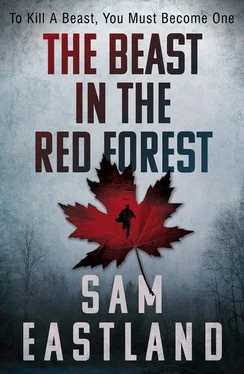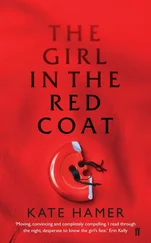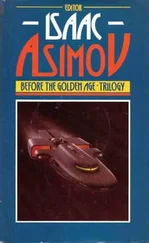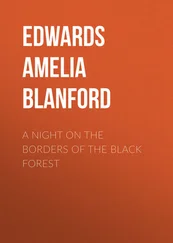Sam Eastland - The Beast in the Red Forest
Здесь есть возможность читать онлайн «Sam Eastland - The Beast in the Red Forest» весь текст электронной книги совершенно бесплатно (целиком полную версию без сокращений). В некоторых случаях можно слушать аудио, скачать через торрент в формате fb2 и присутствует краткое содержание. Год выпуска: 2013, ISBN: 2013, Издательство: Faber & Faber, Жанр: Исторический детектив, на английском языке. Описание произведения, (предисловие) а так же отзывы посетителей доступны на портале библиотеки ЛибКат.
- Название:The Beast in the Red Forest
- Автор:
- Издательство:Faber & Faber
- Жанр:
- Год:2013
- ISBN:9780571281466
- Рейтинг книги:4 / 5. Голосов: 1
-
Избранное:Добавить в избранное
- Отзывы:
-
Ваша оценка:
- 80
- 1
- 2
- 3
- 4
- 5
The Beast in the Red Forest: краткое содержание, описание и аннотация
Предлагаем к чтению аннотацию, описание, краткое содержание или предисловие (зависит от того, что написал сам автор книги «The Beast in the Red Forest»). Если вы не нашли необходимую информацию о книге — напишите в комментариях, мы постараемся отыскать её.
The Beast in the Red Forest — читать онлайн бесплатно полную книгу (весь текст) целиком
Ниже представлен текст книги, разбитый по страницам. Система сохранения места последней прочитанной страницы, позволяет с удобством читать онлайн бесплатно книгу «The Beast in the Red Forest», без необходимости каждый раз заново искать на чём Вы остановились. Поставьте закладку, и сможете в любой момент перейти на страницу, на которой закончили чтение.
Интервал:
Закладка:
After climbing a ladder, they emerged on to the ground floor of the house. It was dark until Pekkala lit a match and then a soft glow spread around the room, revealing a table in the centre, surrounded by an assortment of dilapidated chairs. Against the walls, Kirov saw a crumpled heap of discarded clothes which the former occupants had used for bedding. Some were made from the dull field grey of German army cloth, others from the strange pinkish brown of Russian uniforms and one, which had either been riddled with bullets or else chewed by rats, Kirov couldn’t tell which, bore buttons crested with the double-headed eagle of the Tsar. He could almost hear the lice scuttling along the seams. The place smelled of sweat and tobacco, and the exhausted air felt heavy in their lungs.
Pekkala found an oil lamp resting on the windowsill. He lit the wick and carried the lamp over to the table.
Kirov looked around the dingy room. ‘You call this the best place in town?’
‘You’re welcome to find someplace else.’
There was no arguing with that. ‘And you think we will be safe here?’ he asked.
‘We used this as a hideout during the entire occupation. Every building on this street was searched at one time or another, but this one they left alone.’
‘But why?’
‘The owners died of typhus.’
‘Typhus!’ exclaimed Kirov. ‘We should get out of here immediately!’
‘Relax,’ Pekkala told him. ‘This house has saved more lives than it has taken.’ He picked a coat off the pile and spread it on the floor. Then lay down on it and pulled another coat on top of him. ‘Now get some sleep. Tomorrow you will meet the Barabanschikovs.’
Reluctantly, Kirov sat down with his back against the wall. In spite of the cold, he set his heel against the pile of dirty clothes and pushed them all away.
For a while, he sat there, hugging his ribs and listening to the storm howl down the chimney. He felt pain where the bullet had gone in, as if some small, persistent creature was gnawing its way through the scar. Leaning over to the lamp, he doused the light. Blackness crowded in around him. ‘I suppose there is nothing to eat?’ he asked.
He received no reply. Pekkala was already asleep.
*
Just before dawn, Pekkala awoke with a start. He sat up and looked around. The first grey slivers of dawn showed through cracks in the boarded-up windows.
On the bare floorboards beside him, Kirov lay curled in a ball and shivering in his dreams.
Rising to his feet, Pekkala picked up one of the coats and draped it over Kirov. Then he climbed down into the root cellar, pushed aside the blanket and stepped out into the ditch which had been dug along the edge of the house.
His first breath was like pepper in his lungs.
It had snowed in the night. Even the ruins looked clean.
Through eyes bloodshot with fatigue, Pekkala stared over the edge of the ditch, past the jungle of white-dusted grass to the alley where he had almost lost his life the year before.
*
Pekkala had lived among the partisans for several months before he made his first visit to Rovno, in order to rendezvous with Barabanschikov at the safe house. He had nearly made it there when he accidentally turned down the wrong side street and found himself in an alleyway which was blocked off by a pile of broken furniture. As Pekkala paused, trying to get his bearings, a man appeared from behind the makeshift barricade. From his black uniform with its silver buttons and a soft cap with shiny patent leather brim, Pekkala knew he was a member of the Ukrainian Nationalist Police. This paramilitary group consisted of Russian collaborators, tasked by their German masters with rounding up anyone who posed a threat to the German occupation. They had a reputation for summary brutality, particularly against those suspected of being partisans.
‘Stop!’ shouted the man. He wore round glasses, balanced on a long, thin nose. Beard stubble made a blue haze under his pasty skin. To Pekkala, he looked a like a big, pink rat. ‘Papers!’ he barked as he advanced upon Pekkala, one empty hand held out and the other one gripping a revolver.
Pekkala thought about running, but he knew he’d never make it to the end of the alleyway before the rat man gunned him down. On the orders of Barabanschikov, Pekkala did not carry a gun of his own. There was no possibility of shooting his way out of police custody and the mere possession of a gun was grounds for immediate execution. The only thing Pekkala carried was an old switchblade, its dull iron blade stamped with the maker’s mark of Geck in Brussels, and the stag-horn grips worn almost smooth from years of use. It had been old even when Pekkala spotted it one Sunday afternoon laid out on a table in the market across from his office in Moscow, along with a leather cigar case, a wallet made from crocodile and a pair of gold-rimmed glasses; the mute companions of some traveller’s life now finished with his journey. Tucked deep in his pocket, with the policeman’s revolver only inches from Pekkala’s forehead, the knife was useless to him now.
With no choice but to play the role which Barabanschikov had taught him as a cover, Pekkala pulled a crumpled identity book from the top right pocket of his shirt. The paper was soggy from the rain. The book was real, but it had been altered to fit Pekkala’s physical description. Knowing that the alterations wouldn’t pass close scrutiny, Pekkala struggled to keep his hands from shaking as he held out the book to the policeman.
The man plucked the book from Pekkala’s hand and opened it. ‘Name?’
‘Franko,’ replied Pekkala. ‘Oleksandr Franko.’
‘It says here you are a leather tanner.’
‘That’s right.’
‘Show me your hands.’
Pekkala held them out, palms up.
The rat man tilted his head back, peering out from under the brim of his hat. ‘My uncle was a tanner and his hands were always stained.’
‘The tannery is closed.’
‘And you’re from Rovno?’
‘No. From Zoborol.’
‘Well, as it happens, so am I.’ The policeman brought his gun closer, until the barrel nudged against Pekkala’s cheek. ‘I know everyone in that village, but I don’t know you, Oleksandr Franko.’
Slowly, Pekkala raised his hands, suddenly conscious of his appearance — the hand-carved toggles on his coat and the dirty, twisted strings which fastened them, the wooden-soled shoes fixed to their leather tops with carpeting nails, the knees of his trousers patched with sacking cloth. Dishevelled though Pekkala was, he looked no different from most people in this town, for whom the war had cut off all vestiges of the life which they had once taken for granted.
The man nodded towards the barricade. ‘Go on.’
Pekkala squeezed past a broken chest of drawers and, a few minutes later, found himself in the front hall of a small municipal station which had been taken over by the Nationalist Police.
Sitting at a desk was an officer, his grizzled, unwashed hair piled up like ashes on his head. He demanded Pekkala’s identity book, glanced at it and slapped it shut. ‘Put him in the cell.’
‘But there’s no room,’ the rat man protested.
‘Then cut parts off until he fits,’ growled the officer, ‘and when you get back, I want you to take this identity book over to the German garrison and have Krug check it over.’
‘It isn’t right, I can tell you,’ said the rat man. ‘I mean, it’s real but. .’
A withering stare from the officer choked the words off in his throat. ‘Just do what I tell you to do.’
The rat man grabbed Pekkala by the collar of his coat and, without searching him, led his prisoner down a corridor to a cell already so crowded that those in the middle had to stand. Fear clawed up his spine as he recalled the convict train on which he had travelled to the gulag of Borodok. He thought of the convicts who had died on their feet, their eyes cataracted with frost. The walls seemed to ripple with the faces of the dead and he heard again the sound of wheels clacking over the tracks.
Читать дальшеИнтервал:
Закладка:
Похожие книги на «The Beast in the Red Forest»
Представляем Вашему вниманию похожие книги на «The Beast in the Red Forest» списком для выбора. Мы отобрали схожую по названию и смыслу литературу в надежде предоставить читателям больше вариантов отыскать новые, интересные, ещё непрочитанные произведения.
Обсуждение, отзывы о книге «The Beast in the Red Forest» и просто собственные мнения читателей. Оставьте ваши комментарии, напишите, что Вы думаете о произведении, его смысле или главных героях. Укажите что конкретно понравилось, а что нет, и почему Вы так считаете.











